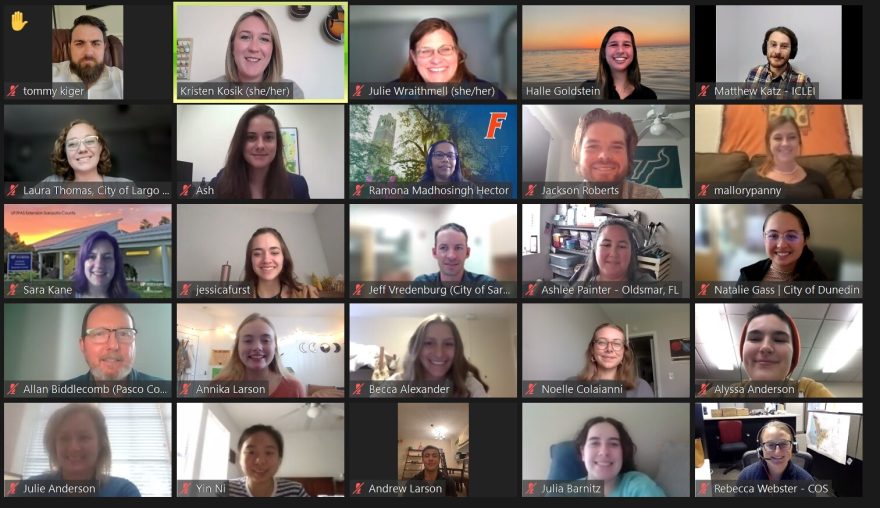Multiple municipalities within the greater Tampa Bay region will catalog their carbon footprints with help from University of South Florida students. It’s one step toward making local governments more energy efficient.
Pasco and Sarasota counties, plus 10 cities/towns: Largo, Belleair, Sarasota, Treasure Island, Safety Harbor, St. Pete Beach, Clearwater, Dunedin, Tarpon Springs, and Oldsmar are voluntarily participating in the project.
As interns, the USF students majoring in Environmental & Science Policy at the Tampa and St. Petersburg campuses will assess emissions produced by the cities and counties including in their buildings, vehicles and waste services.
They will train and use technology through ICLEI-Local Governments for Sustainability, which is a global network of more than 2,500 local and regional governments committed to sustainable urban development.
A pilot project launched back in 2021 for East Central Florida, where 18 municipalities participated. Volusia, Lake, Orange, Osceola, Brevard and Seminole counties had their carbon footprints recorded, along with Cape Canaveral, Cocoa Beach, Satellite Beach, Titusville, Ormond Beach, Rockledge, Kissimmee, Melbourne Beach, DeLand, Palm Bay, Cocoa, and Apopka.
Beth Alvi is the director of policy for Audubon Florida, which is funding and co-facilitating the partnership. She said regional climate compacts come with multiple benefits.
“Resiliency does not know boundaries… it's good to get local governments talking together, to find solutions together,” said Alvi. “It also expedites the greenhouse gas inventory process. And it, equally importantly, provides training for the next generation of resilience leaders.”
The Tampa Bay area students will get a first-hand experience of how local governments work, she said. And as for the municipalities, this will ultimately help them develop draft climate and resilience action plans.
"Once you have your baseline set, it really helps them develop policies that are data-driven, and that really provide transparency and accountability to the taxpayer," said Alvi. “Other states have taken on this effort, but they've taken it on at the statewide level. In Florida, we're seeing the cities and counties leading the way.”
Halle Goldstein, also with Audubon Florida and recruiter for this collaboration, said the municipalities were selected by making cold-calls and getting recommendations from the Tampa Bay Regional Resilience Coalition.
“As far as municipalities, they will start collecting the data and meeting with the student to basically collaborate on this project and ensure that the student knows exactly what's expected of them throughout the semester," she said.
The students will input emission information onto an Excel spreadsheet until the end of the spring semester. The collaboration plans to have all the collected the data completed by December.





